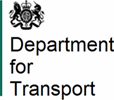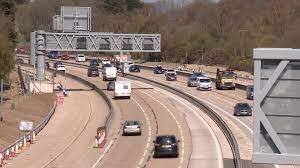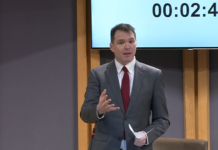
- Rollout of new All Lane Running smart motorway schemes will be paused until five years of safety data available
- Current stretches of smart motorway to be further upgraded with best-in-class technology and resources
- £900 million commitment to ensure drivers feel safe and confident, including extra £390 million to install additional emergency areas
The rollout of new smart motorway schemes will be paused until a full five years’ worth of safety data is available, as the Department for Transport invests £900 million to improve safety on existing All Lane Running (ALR) motorways.
In line with the Transport Committee’s most recent recommendations, the rollout of new ALR smart motorways will be paused until a full five years’ worth of safety data becomes available for schemes introduced before 2020. After this point, the Government will assess the data and make an informed decision on next steps.
Although available data shows smart motorways are comparatively the safest roads in the country in terms of fatality rates, while their rollout is paused, the Government will go further by ensuring current smart motorways without a permanent hard shoulder are equipped with best-in-class technology and resources to make them as safe as possible.
This will include investing £390 million to install more than 150 additional Emergency Areas so drivers have more places to stop if they get into difficulty. This will represent around a 50% increase in places to stop by 2025, giving drivers added reassurance.
The Department for Transport has welcomed the Transport Committee’s report, which endorsed its focus on further upgrading the safety of existing ALR smart motorways rather than reinstating the hard shoulder. As concluded by the Committee, evidence suggests hard shoulders do not always provide a safe place to stop, and by reducing motorway capacity, they could put more drivers and passengers at risk of death or serious injury if they were to divert onto less safe local roads.
Transport Secretary Grant Shapps said:
“One of my first actions as Transport Secretary was to order a stocktake of smart motorways and since then, I have worked consistently to raise the bar on their safety. I am grateful to the Transport Committee and to all those who provided evidence for its work.
“While our initial data shows that smart motorways are among the safest roads in the UK, it’s crucial that we go further to ensure people feel safer using them.
“Pausing schemes yet to start construction and making multi-million-pound improvements to existing schemes will give drivers confidence and provide the data we need to inform our next steps. I want thank safety campaigners, including those who have lost loved ones, for rightly striving for higher standards on our roads. I share their concerns.”
National Highways CEO Nick Harris said:
“We have listened to public concerns about smart motorways and we are fully committed to taking forward the additional measures the Transport Committee has recommended.
“While we pause those all lane running schemes yet to start construction we will complete the schemes currently in construction, we will make existing sections as safe as they can possibly be and we will step up our advice to drivers so they have all the information they need.
“We are doing this because safety is our absolute priority and we want drivers to not just be safer, but also to feel safe on our busiest roads.”
Independent road safety campaigner, Meera Naran, whose 8-year-old son Dev, died in a motorway crash on the M6 in 2018, said:
“Conventional and smart motorways both have their risks and benefits. I welcome this pause in the rollout of smart motorways which will give us all a positive opportunity to assess the future of our motorway network.
“I’m encouraged by the commitment of £900 million to improve the safety of our motorways, following my campaigning since Dev died. However, I’ll continue to both challenge and work alongside the Department for Transport to ensure even more is done, including calling for legislation to be looked at for Autonomous Emergency Braking and further support for on-going driver education.”
The Government’s response to the Transport Committee builds on the significant progress already made against the Department’s 18-point Action Plan to improve smart motorway safety, announced in March 2020, including adding emergency areas and upgrading cameras to detect Red X offences.
The measures in the Stocktake and Transport Committee response represent over £900m of improvements in total, including £390m of new money for extra emergency areas, with the remainder of the funding delivering other measures such as Stopped Vehicle Detection and concrete central reservation barriers.
National Highways will also ramp up communications so drivers have better information about how to drive on smart motorways.
While the Department for Transport will be taking forward all the recommendations set out in the Committee’s recommendations, it does not agree with the view that smart motorways were rolled out prematurely or unsafely. All ALR smart motorway schemes are, and will continue to be, subject to high standards of design, risk assessment and construction, followed by detailed monitoring and evaluation once opened to traffic.
While further data is being collected, National Highways will continue work to complete schemes that are currently in construction, which will all open with technology in place to detect stopped vehicles. These schemes are all more than 50% completed and halting progress on them now would cause significant disruption for drivers. Design work will also continue on those schemes already being planned, so they are ready to be constructed depending on the outcome of the pause. No preparatory construction work will take place.
Also, in line with the Committee’s recommendations, National Highways will pause the conversion of Dynamic Hard Shoulder (DHS) motorways – where the hard shoulder is open at busy times – into All Lane Running motorways, while it investigates alternative ways of operating them to make things simpler for drivers. National Highways will also install technology to detect stopped vehicles on these sections.
Help keep news FREE for our readers
Supporting your local community newspaper/online news outlet is crucial now more than ever. If you believe in independent journalism, then consider making a valuable contribution by making a one-time or monthly donation. We operate in rural areas where providing unbiased news can be challenging. Read More About Supporting The West Wales Chronicle
























